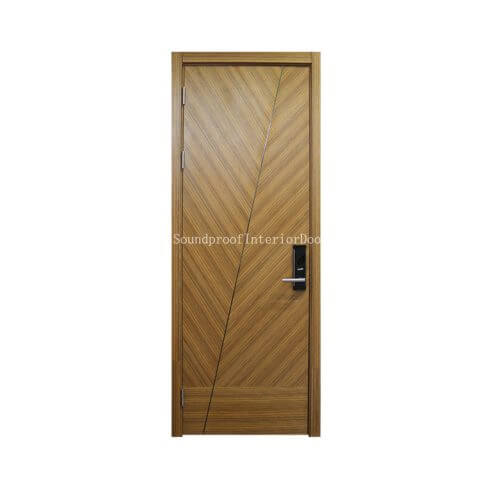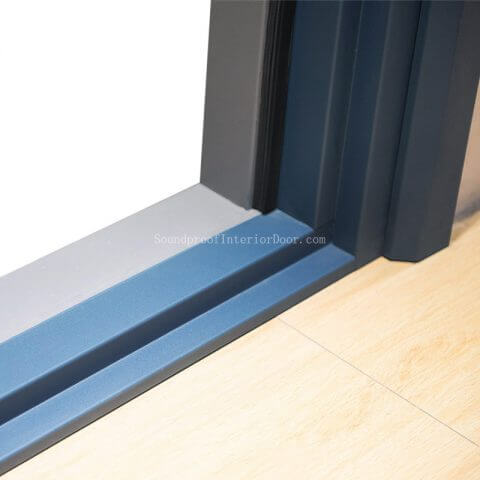I. Introduction
Interior design combines function and aesthetics in harmony, and soundproofing plays a pivotal role in creating an atmosphere of peace and serenity. Doors can contribute significantly to creating noise-free zones; therefore this blog post explores soundproof solid interior doors as a potential means of doing just that! We will examine their design options, finishes, acoustic performance and visual appeal before coming together as one unified unit to improve any space’s acoustic performance and visual aesthetic.
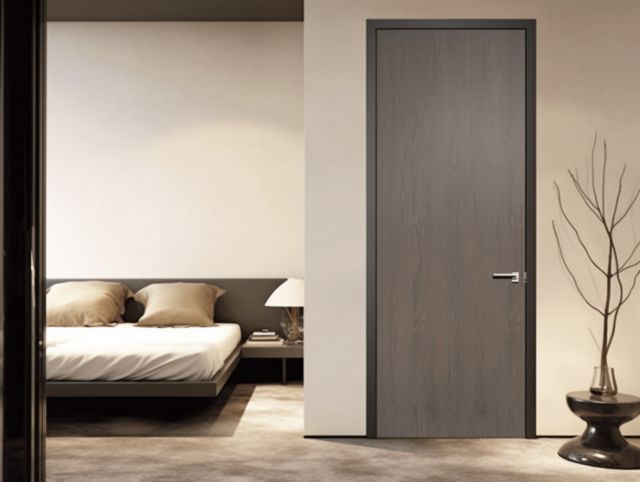
II. Understanding Solid Core Soundproof Door
Solid core doors, as their name implies, consist of solid core materials like wood, metal or composite encased in two layers of veneer or other surface materials. What sets these apart from hollow core or semi-solid doors is their substantial construction which provides greater soundproofing capabilities.
Are solid doors more soundproof? Yes. Solid oak interior doors achieve their soundproofing properties through their ability to dampen sound vibrations. Their dense core material absorbs and reduces noise transmission, making these an excellent choice in spaces where privacy and noise control are essential.
Benefits of Solid Core Soundproof Doors
- Improved Sound Insulation: Does a solid door reduce noise? Yes, solid core interior door offers exceptional sound insulation compared to other forms of doors, thanks to the dense composition that reduces sound wave transference, creating a quieter and more peaceful environment.
- Privacy and Confidentiality: Whether in the home office, recording studio or conference room, internal solid door offers added layers of privacy and confidentiality. They prevent sound leakage so that conversations and activities remain discreet.
- Improved Energy Efficiency: Along with their soundproofing properties, internal solid oak door also contributes to greater energy efficiency. Their dense construction helps prevent drafts, keeping interior spaces well insulated while simultaneously decreasing energy consumption and costs.
- Durability and Longevity: Solid metal doors are known for their strength and longevity. Their solid core material provides strength and stability, protecting them against warping, cracking and other forms of damage that could otherwise compromise soundproofing capabilities and aesthetic appeal over time. This ensures they maintain soundproofing capabilities as well as their aesthetic appeal for years to come.
Once we understand the advantages of solid core door soundproof, let us explore the various design features and finishes that complement any interior style.
Stay tuned for next part of this blog post where we will examine design options for solid composite interior doors, such as their use of different materials and any associated advantages or disadvantages.
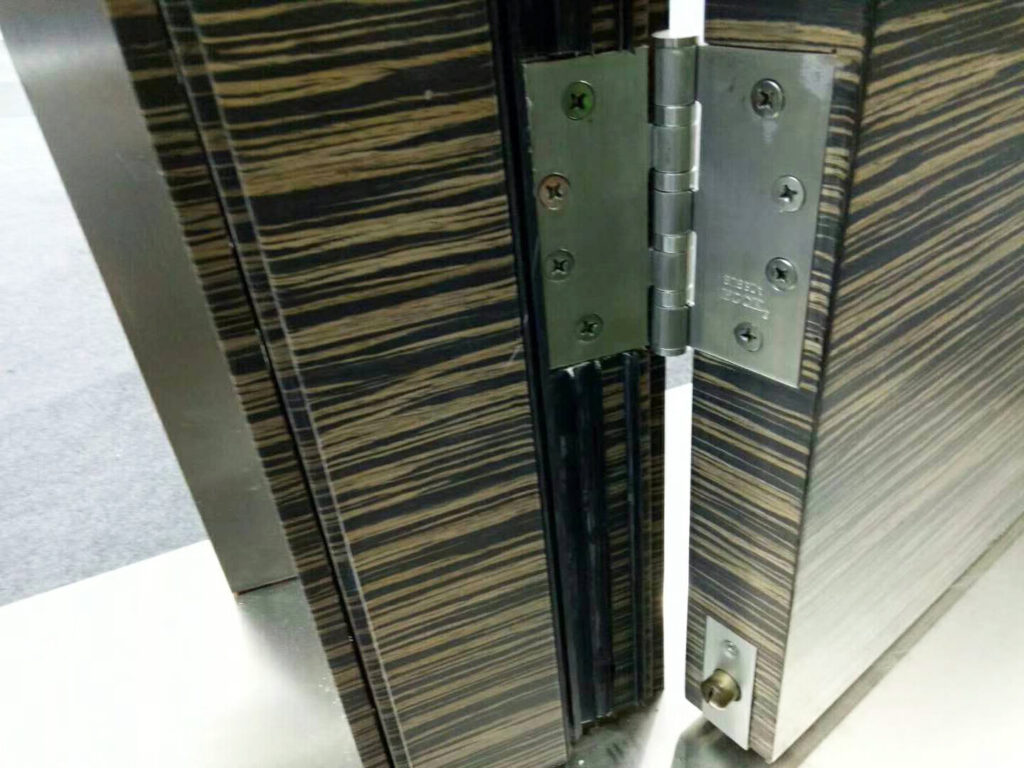
III. Design Options for Solid Core Soundproof Doors
Solid composite interior door comes in a range of materials that offer distinct advantages and aesthetic qualities, all offering distinct advantages for solid core doors. Below are some popular materials used for solid soundproof door:
Wood Material
Solid oak interior door is timeless classics due to the natural warmth and timeless beauty, providing excellent soundproofing properties while adding elegance. Wood doors can even be stained or painted for customization purposes to fit into various interior design styles.
Metal Material
Solid metal doors are known for their strength, durability, and modern aesthetic. The solid metal door and frame offer exceptional sound insulation capabilities which makes them popular choice in commercial or industrial settings where security and noise control is crucial. Metal doors may be powder-coated or painted for further aesthetic enhancement or corrosion protection.
Composite Doors
Solid composite doors combine different materials such as wood fibers and resin to provide a strong and versatile solution, including soundproofing benefits while remaining more affordable than their wooden or metallic counterparts. Composites may be finished off with veneer or painted to achieve the desired look.
Each material offers its own advantages and disadvantages; when choosing the optimal material for solid soundproof doors it is essential to take factors like budget, aesthetic preferences and specific project requirements into account when making the selection decision.
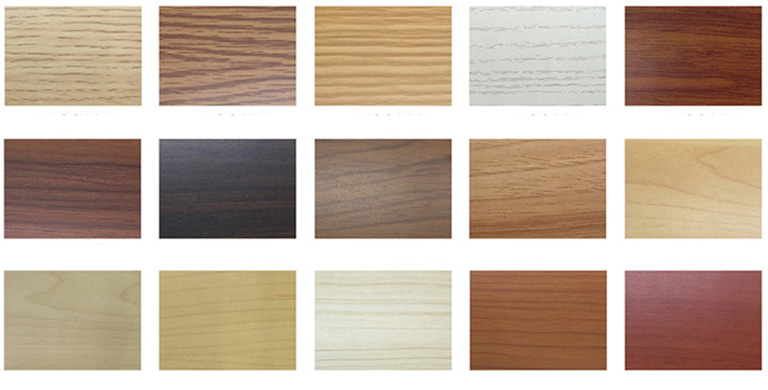
IV. Finishes for Solid Core Soundproof Door
Material selection is of course essential, but finishes add another vital dimension to solid sound proof doors’ aesthetics and overall design. Not only do finishes protect the door surface but they can also add depth, texture, and color. Let’s take a look at some popular options available:
Paint Finishes
Painting offers an adaptable finishing solution, enabling you to coordinate your door’s hue with any interior decor scheme. With so many paint colors available and the ability to mask natural grains on material surfaces, painting allows you to achieve a sleek and even surface that makes an eye-catching statement about its subject matter.
Stain Finishes
Staining is an excellent way to bring out the natural beauty of wood. Stains come in various shades ranging from light to dark, providing you with enough options to create depth and character that you are happy with.
Veneer Finishes
Veneer is a thin layer of real wood applied directly onto the door surface, giving it the beauty and protection offered by natural wood while being more wear resistant. Veneer finishes come in various wood species so you can achieve any aesthetic you prefer, from classic oak to contemporary walnut looks.
Different finishes can enhance different interior design styles. For instance, sleek and glossy paint finishes can elevate a modern or minimalist interior, while rich textured stained finishes bring warmth and character into a traditional or rustic space.
By carefully selecting materials and finishes for your solid core door noise reduction, you can create a pleasing environment while taking full advantage of sound insulation benefits.
Stay tuned for next part of this blog post where we will address the soundproofing performance of solid door soundproof, and how to choose one with sound reduction capabilities that meet your specifications.
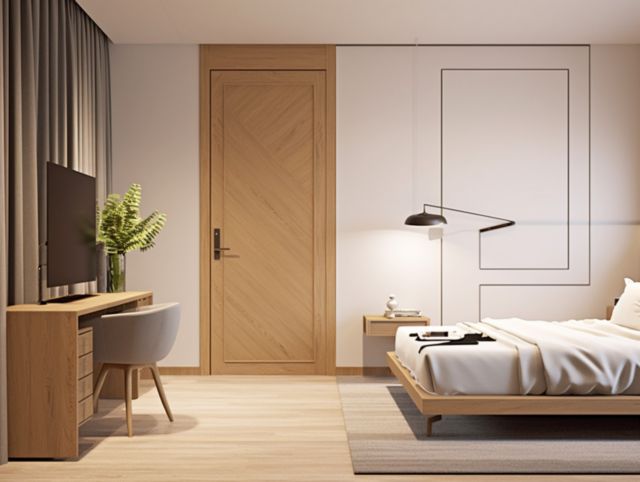
V. Soundproofing Performance of Solid Core Doors
Soundproof solid core door should provide effective noise-blocking properties. Let’s go over some frequently asked questions and investigate their features, like:
Do Solid Core Doors Reduce Noise Effectively?
Yes, solid core doors are known to provide superior soundproofing capabilities. Their dense core material acts as a buffer to absorb sound waves and reduce noise transmission between rooms. As opposed to hollow core doors with an empty interior space, solid core doors offer superior insulation against sound transference between rooms.
Solid Core Soundproof Doors Offer Soundproofing Advantages
Solid soundproof interior doors may offer soundproofing benefits depending on various factors such as material or construction details; however, in general these doors provide soundproofing benefits:
- Increased Mass: Solid core doors feature dense core material that adds mass, helping to block and absorb sound vibrations and provide better insulation from noise transmission. This increased mass allows for improved sound insulation and lessens transmission rates.
- Damping Properties: Solid doors for soundproofing possess natural damping properties that allow them to absorb sound energy and prevent it from bouncing off their surfaces and echoing back into their surrounding space. This helps avoid sound waves reverberating through your home and into other rooms of the home.
- Tight Seals: Installing solid core soundproof doors with tight seals along their edges can further increase their soundproofing ability, helping minimize gaps and air leakage that could potentially result in sound leakage. These seals help to reduce sound leakage risks.
Sound Rating Systems and Selecting the Appropriate Door
When selecting a solid core soundproof door, it is imperative that its sound rating be taken into consideration. Sound ratings can be measured using various systems like Sound Transmission Class (STC) and Outdoor-Indoor Transmission Class (OITC), demonstrating its ability to absorb various frequencies.
Higher STC or OITC ratings signify better soundproofing performance. Consider your specific noise reduction needs before selecting a door with an appropriate sound rating to achieve the level of noise insulation desired for your space.
Noting the overall soundproofing performance of any room depends on a number of variables, including its quality of door and wall construction, insulation or acoustic panels used, etc.
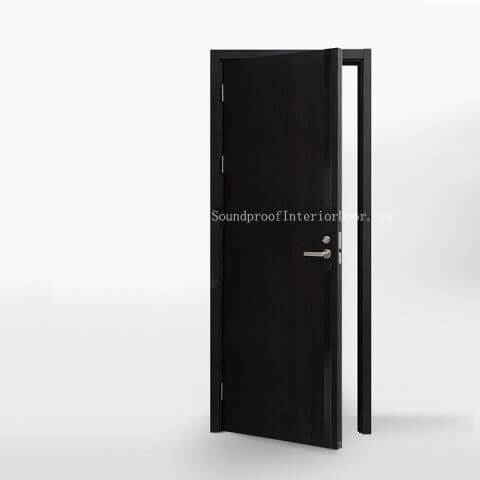
Sound Insulated Door
Sound Insulated Door For Auditorium Soundproof Door Panel Sound Insulated Interior Doors
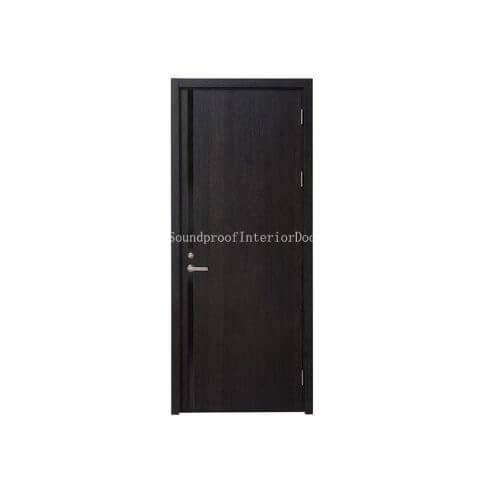
Sound Insulated Doors
Sound Insulated Doors Manufacturers Of Insulated Doors Panels Sound Insulation
VI. Conclusion
Solid core soundproof doors combine functionality and aesthetics, making them an excellent option for spaces requiring noise control and privacy. We discussed their design options and finishes available, such as wood door, commercial steel door and composite materials as well as finishes such as paint, stain or veneer finishes. Furthermore, we addressed common questions related to soundproofing performance of solid core doors while emphasizing their ability to reduce noise effectively.
When choosing solid core soundproof doors, take into account factors like material, finish and sound rating to select an option that meets all of your specific requirements. By carefully considering both functionality and aesthetics when making this selection, you can create an environment which not only looks appealing but provides a peaceful and tranquil space.
Remember, selecting solid core door sound rating can make a major impactful in improving comfort and tranquility in any space.

